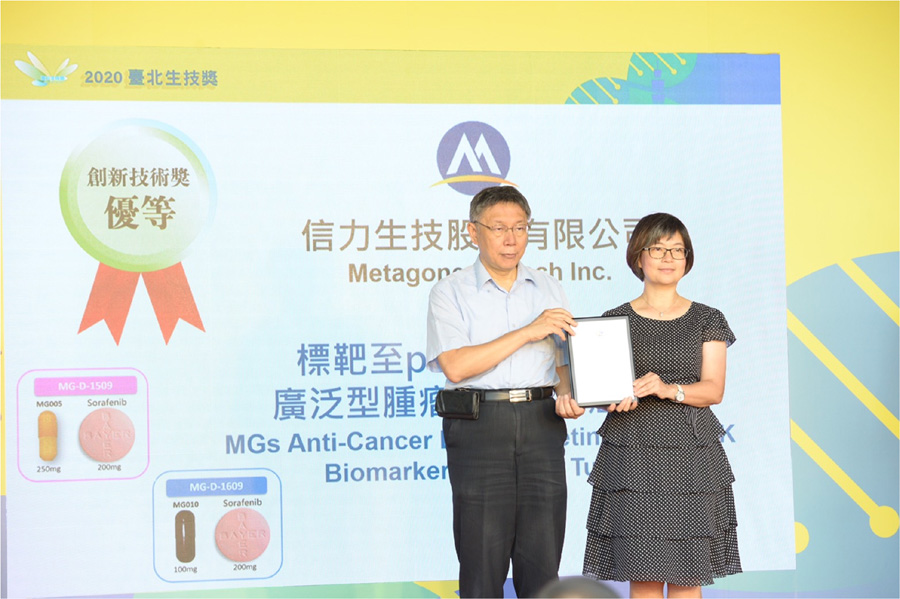News CenterNews Center
{Metagone BREAKING NEWS}
Some cancer patients still suffer from recurrence of the disease due to the failure to eradicate a small group of drug-resistant cancer cells and obvious side effects even after treated with targeted therapies. Metagone has conducted several researches on common cancers, and found that most malignant tumor cell lines express p-Death Association Protein Kinase (p-DAPK) after phosphorylation, and MG series anticancer drugs have obvious cytotoxic effects on these tumor cell lines.

The innovative anti-cancer drug MG-D-1609 can accurately identify and kill cancer cells, reducing side effects and drug resistance in patients. Now its cytotoxic effect has been confirmed in both cell and animal experiments of lung cancer, colorectal cancer, kidney cancer and liver cancer, which is urgent and lack breakthrough therapies. In lung cancer, EGFR TKI inhibitors, such as Gefitinib, Afatinib and Osimertinib, are used as first-line and second-line drugs as standard therapies. However, most patients will develop drug-resistance in the later course of treatment. Clinical data also show that the 5-year survival rate of patients with advanced lung cancer (IV) is lower than 6%. In colorectal cancer, the current first-line and second-line target drugs are Avastin or Zaltrap combined with chemotherapy. Such therapeutic approaches have more side effects for advanced patients. Clinical data also shows that 5-year survival rate is only 11% in patients with advanced colorectal cancer (IV). In addition, Nexavar is the main target therapy for liver cancer. But its overall response rate is quite low, which is only 2.3-3.3%. Nowadays there is no effective drugs for the patients with these cancer mentioned above at late stage, and the MG series drugs are expected to bring new hope to them.